

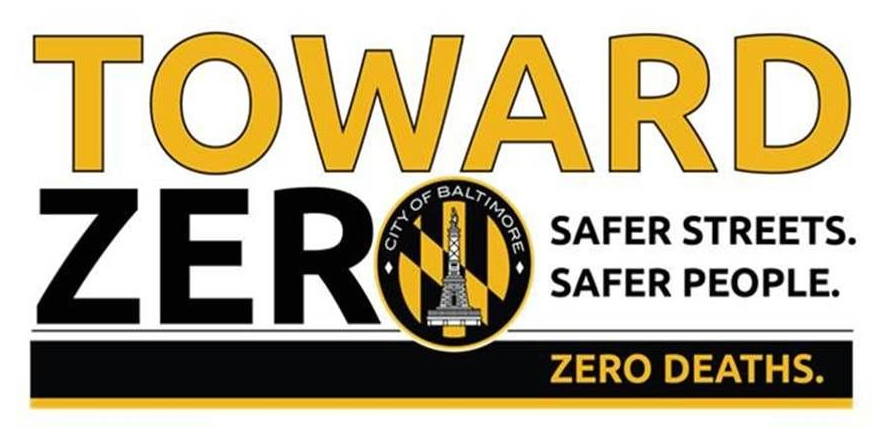
Toward Zero is the guiding philosophy for all of BCDOT’s projects, plans, and programs. Roadway injuries and fatalities are unacceptable, so BCDOT is committed to implementing strategies and designing solutions that can prevent roadway crashes that cause injuries or fatalities. This commitment places Baltimore among the leaders in pedestrian safety, ultimately creating a truly walkable and safe city. Using roadway safety as its mission and Complete Streets as its means, BCDOT is working towards a transportation system in Baltimore City in which every person can move safely, comfortably, and joyfully, no matter their travel mode, neighborhood, or age, or ability.
BCDOT is prepared to embed the Toward Zero mission into every aspect of its operations and administration, leveraging every resource available. This webpage will showcase the efforts that BCDOT is taking to improve safety on Baltimore roadways, with a particular focus on protecting pedestrians, cyclists, scooter riders, transit riders, and other vulnerable roadway users. This page will also be home to crash data, project safety evaluations, safety communications, and announcements. Additionally, residents will be able to find information relevant to improving roadway safety in their neighborhoods with their communities. Check back in the coming months for more information.
Baltimore City’s Strategic Highway Safety Plan
The Strategic Highway Safety Plan is Baltimore City’s blueprint for achieving zero roadway deaths and serious injuries by 2030. The SHSP presents an action plan for BCDOT, partner agencies, and community members to transform Baltimore’s transportation system into one that safeguards against serious or fatal incidents. Prioritizing locations with the highest levels of crash severity and transportation equity need, BCDOT will implement roadway safety through the following Emphasis Areas:
This plan was adopted in April 2022. BCDOT is currently working to operationalize the SHSP into its administration. Check back soon for more updates on roadway safety initiatives.
Toward Zero Quickbuild Program
BCDOT has created a dedicated funding source for “Quickbuild” traffic safety interventions at high-crash locations around the City. Rather than a multi-year design and construction process, BCDOT can use temporary materials, such as flex posts, striping, crosswalks, and pre-fabricated structures, to urgently engineer safer conditions at locations that need solutions now. Quickbuild projects allow BCDOT to pilot safety interventions that can ultimately inform long-term designs. For example, striped bump-outs with flex-posts can set the stage for concrete bump-outs with bioswales and bollards, or a striped median can transition into a planted median with new street trees.
Designs that improve roadway safety typically mean slowing speeds and preventing points of conflict between vehicles and vulnerable roadway users (walkers, bikers, scooter-riders, etc).
Each year, BCDOT analyzes geographical crash data from the prior three years to identify intersections and corridor segments of concern. BCDOT evaluates hot spots for both crash frequency and crash severity, looking at vehicle-only crashes as well as concentrations of crashes involving pedestrians, bicyclists, and scooter-riders. From these analyses, coupled with analyses pertaining to equity need and interference or connections with planned projects, BCDOT selects multiple locations for Quickbuild safety interventions.
In its first year of programmatic operation, BCDOT selected the following high-crash locations for Quickbuild designs:
Designs from the program's first year will be implemented in the 2023 Paving Season.
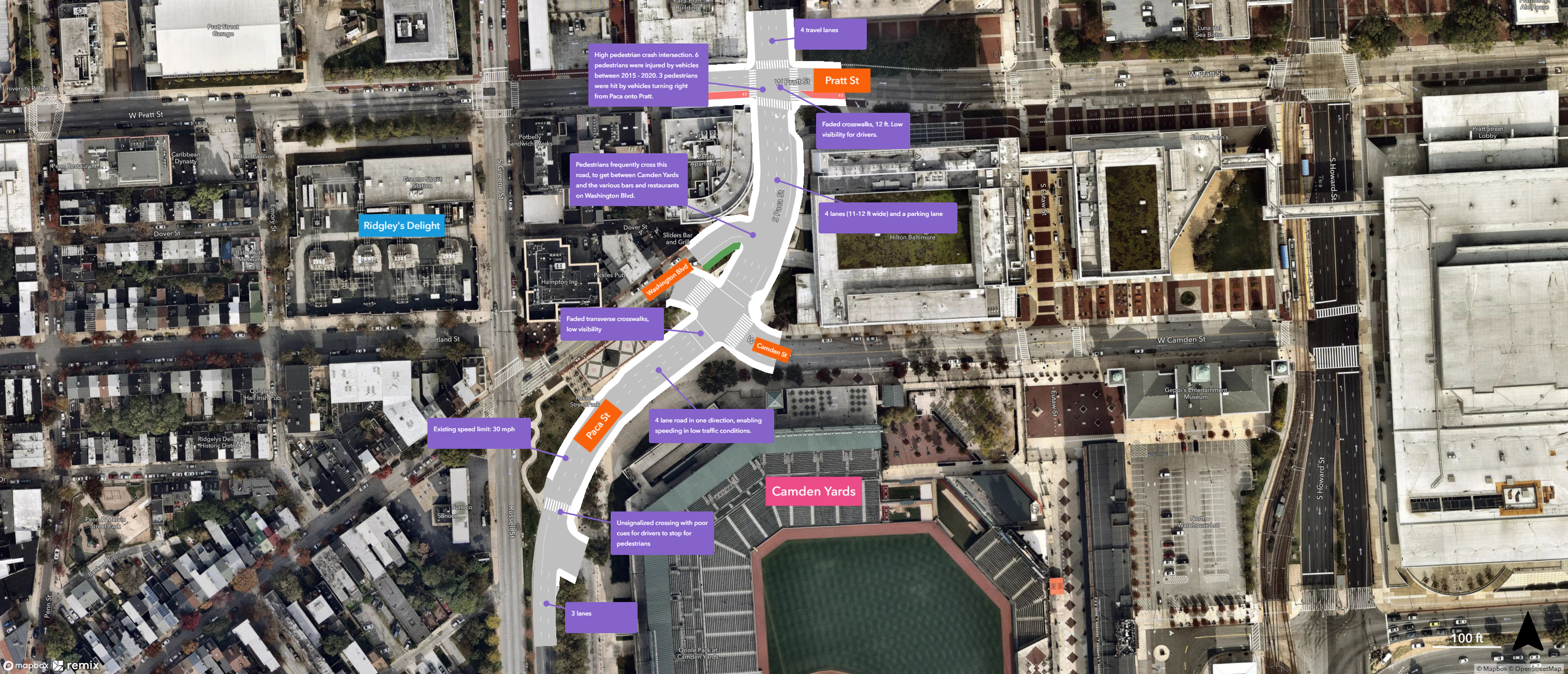
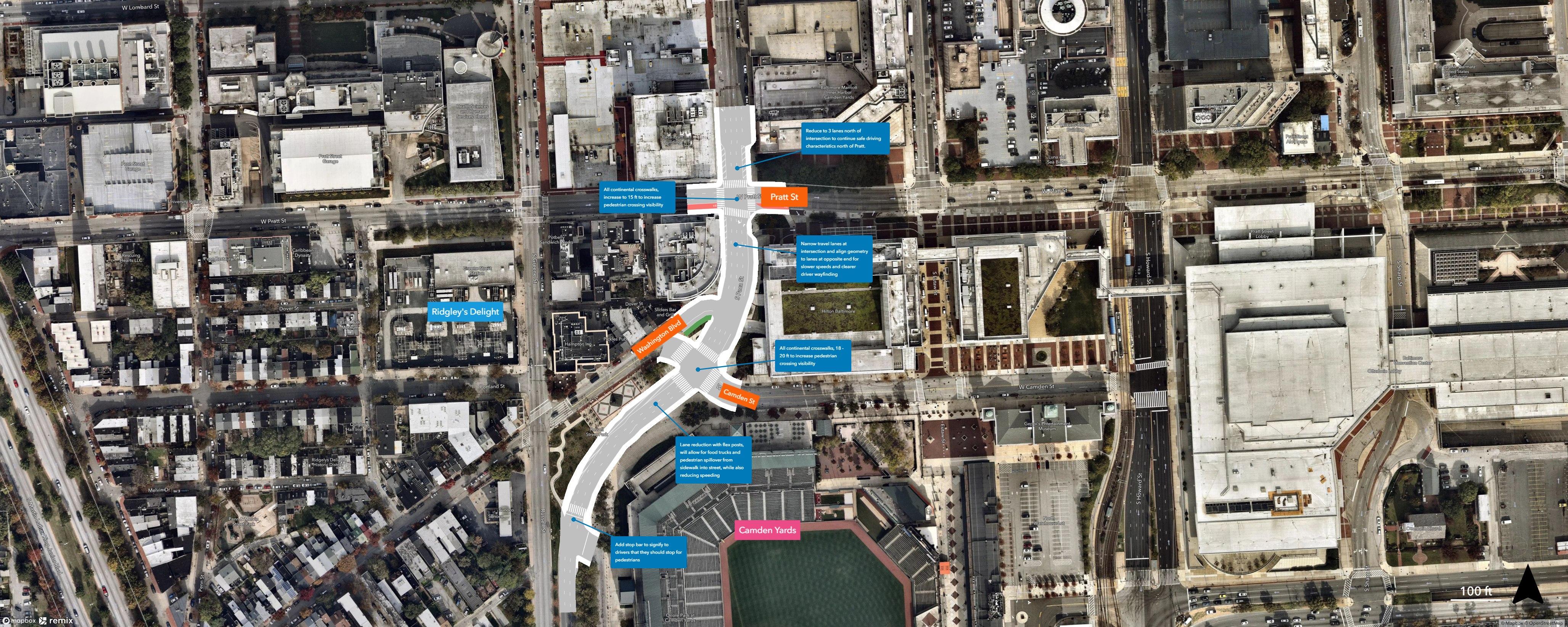
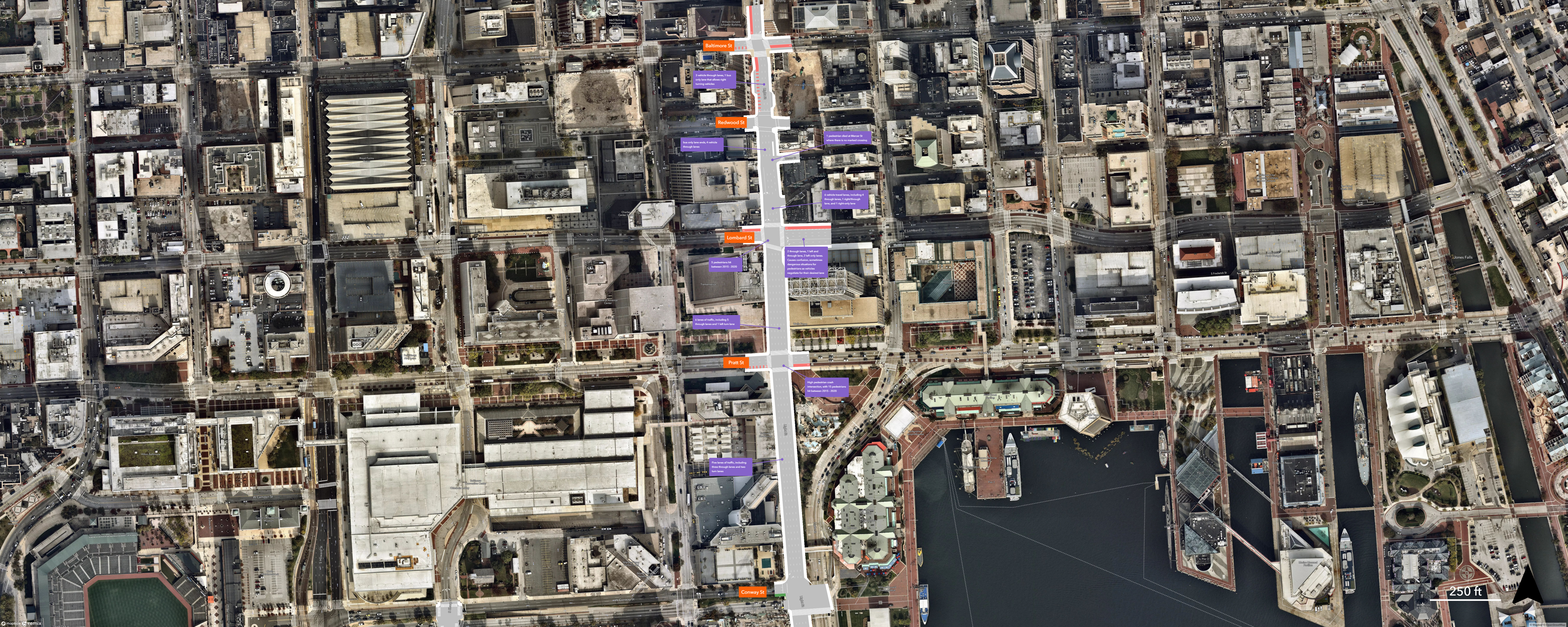
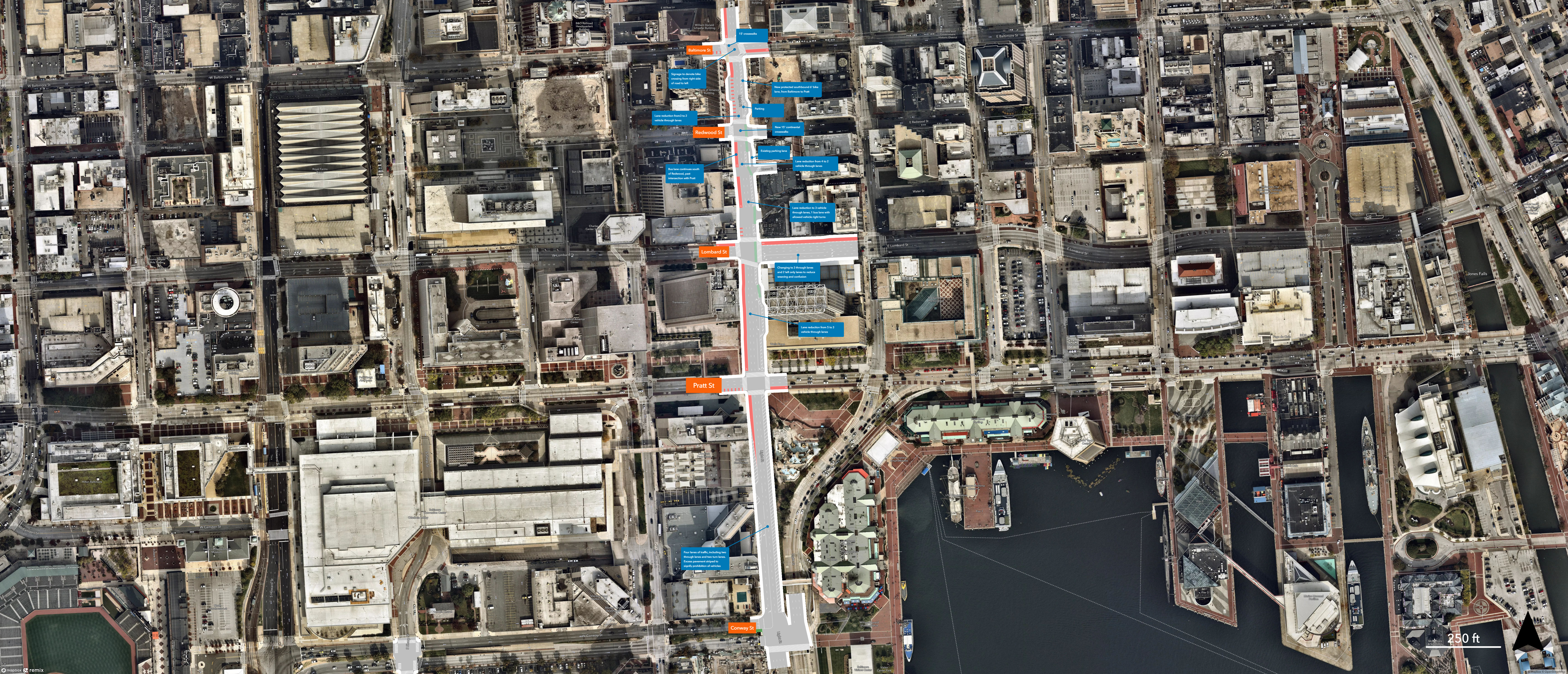
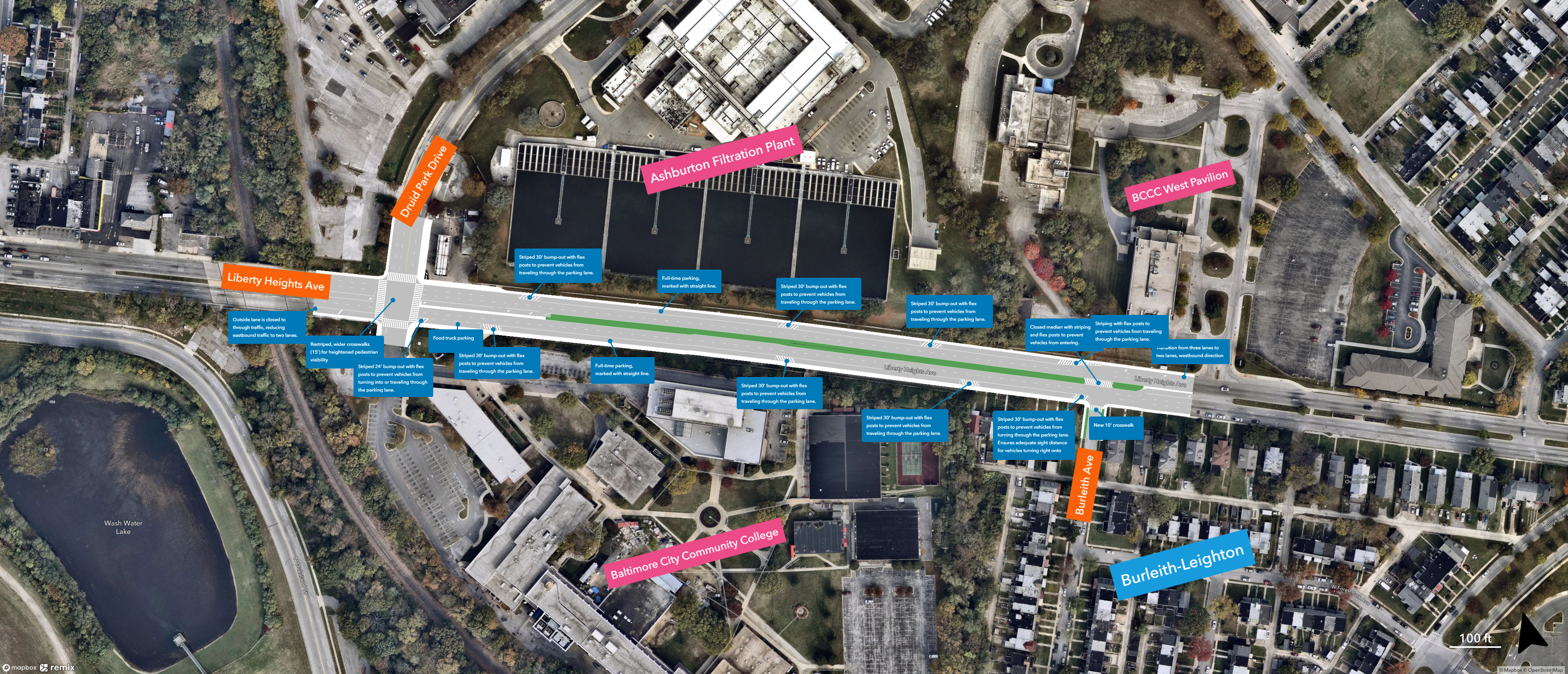
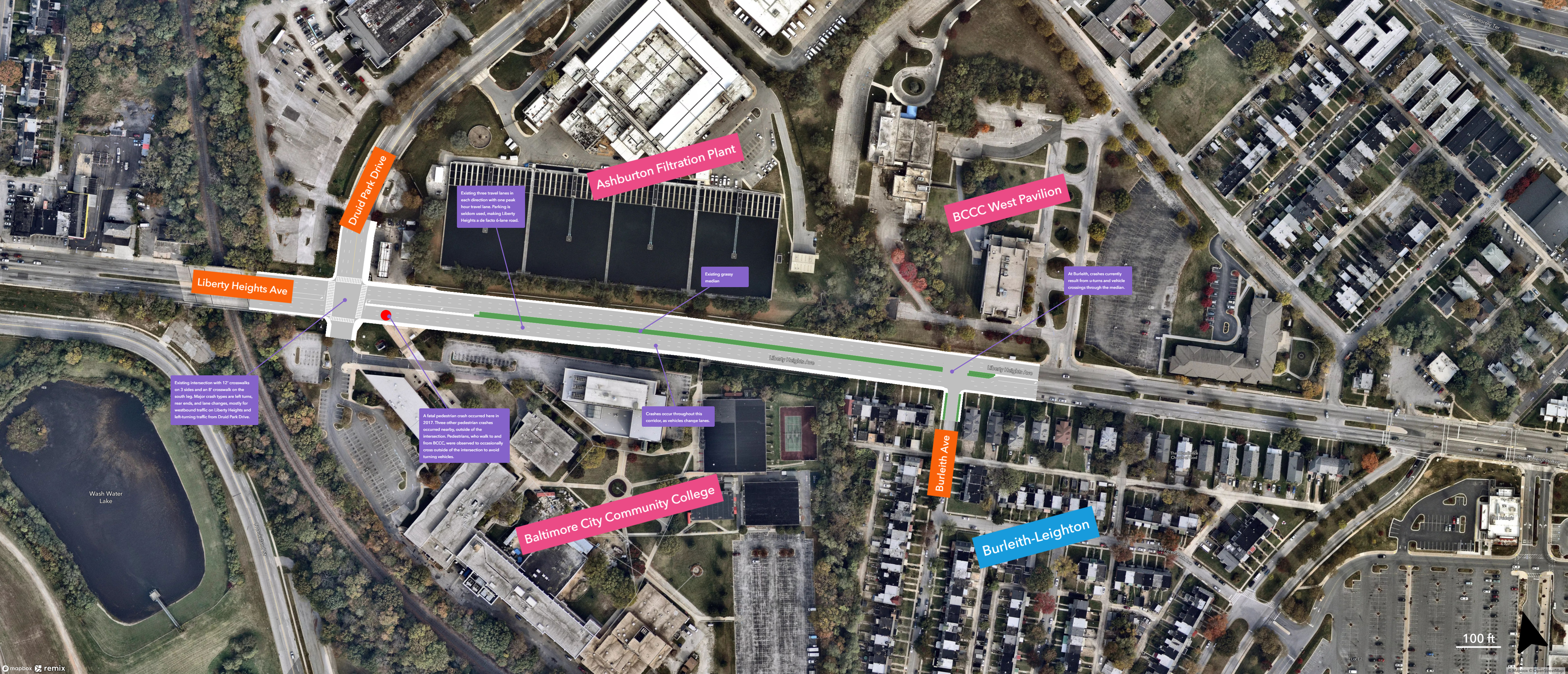
Neighborhood Traffic Calming Program
Beginning in 2022, BCDOT allocates special funding to expedite traffic calming in high crash neighborhoods. BCDOT selects neighborhoods by reviewing historical crash data in combination with elevated indicators of demographic equity need, such as high concentrations of older adults, children, low-income households, and people who rely on public transportation.
Traffic calming measures will be implemented on local neighborhood roads only and can include the following treatments:
The selected neighborhoods will undergo a design process with BCDOT. BCDOT will hold three meetings with each neighborhood:
Meeting 1: BCDOT will present a summary of neighborhood crash statistics and historical 311 requests. This is also an opportunity for neighbors to discuss ongoing traffic safety issues in the area and make specific requests.
Meeting 2: BCDOT will present initial traffic calming design proposals that fall within the neighborhood’s allocated budget. Neighbors will have the opportunity to provide feedback on the designs and suggest modifications, substitutions, and additions.
Meeting 3: BCDOT will present the final traffic calming designs and implementation schedule.
Neighborhoods selected for the first year of the program (2022)
Designs from the program’s first year will be implemented in Spring of 2023.
Safe Streets and Roads For All (SS4A)
In September of 2022, Baltimore City DOT applied to the USDOT Safe Streets and Roads For All program to further develop the Baltimore City SHSP into a Vision Zero Action Plan. In partnership with Morgan State University, Johns Hopkins University, and the University of Maryland, BCDOT will draw upon a variety of data sources and models to identify specific projects, programs, and campaigns that will eliminate all roadway deaths and serious injuries on Baltimore City streets. Further, BCDOT will also evaluate the public health impacts of its proposed projects, reflecting a new paradigm in the way BCDOT thinks about and values traffic safety. This Action Plan will make Baltimore City eligible for millions of dollars of federal implementation funding for safe transportation infrastructure in the coming years.
For more information about the program, please visit the USDOT SS4A Website: https://www.transportation.gov/grants/SS4A
Toward Zero History
Former Mayor Stephanie Rawlings-Blake adopted the Baltimore City Strategic Transportation Safety Plan in 2013. A later effort in 2018 expanded upon this effort with the establishment of Toward Zero. A history of the efforts and plans are